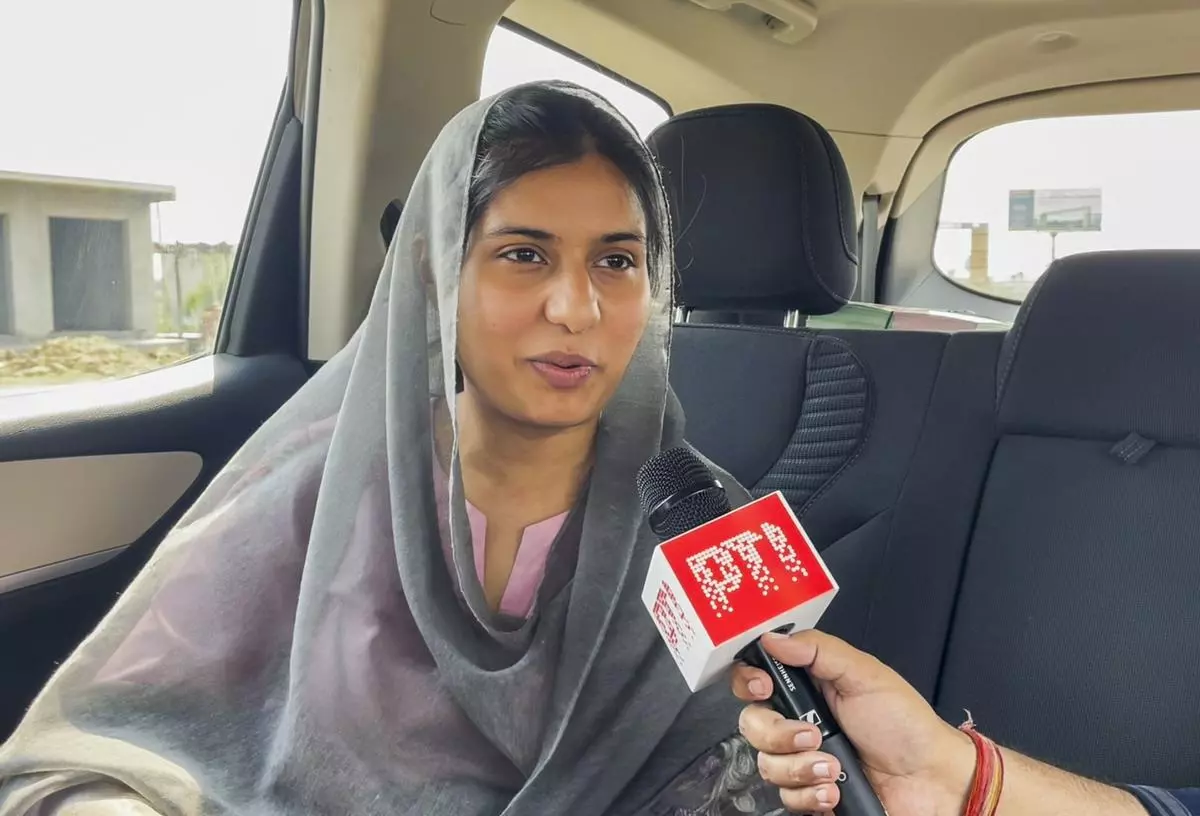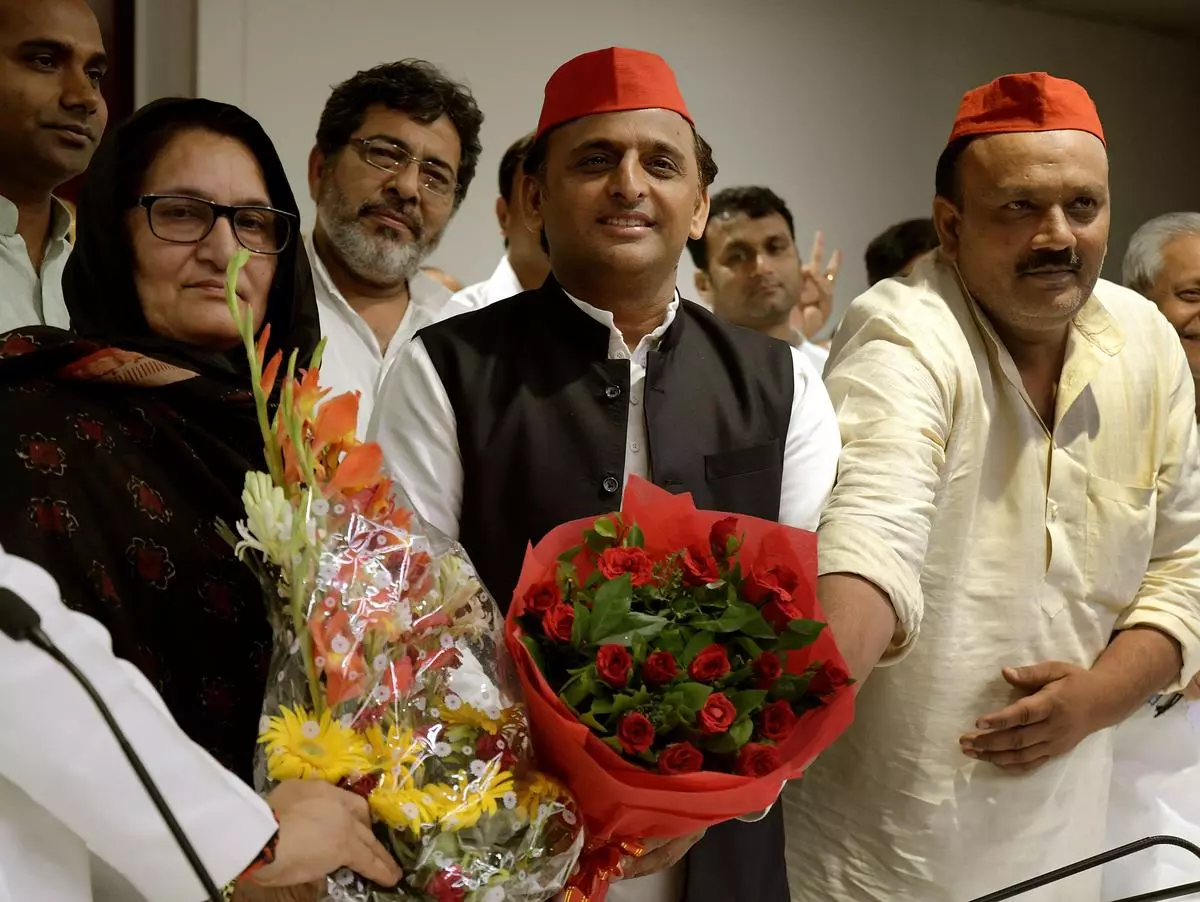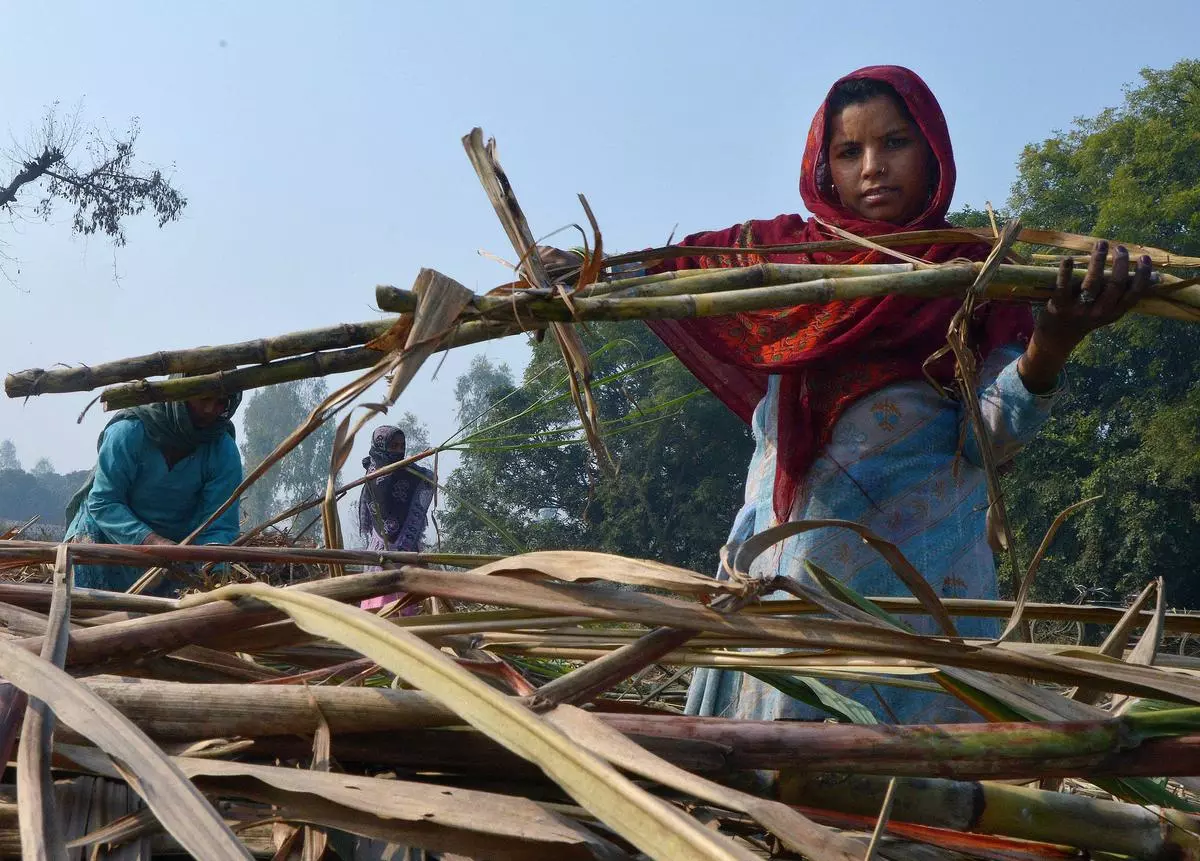On June 24, a day before she was set to take oath in the 18th Lok Sabha, Iqra Hasan, the Samajwadi Party (SP) candidate who won from Uttar Pradesh’s Kairana in the general election, told Frontline with disarming candour: “It’s been 20 days since the results, but I haven’t fully come to terms with it.”
Kairana is a key constituency in Uttar Pradesh that went to the BJP’s Pradeep Chaudhary in the 2019 general election. Chaudhary had defeated Iqra’s mother, Begum Tabassum Hasan of the SP. This time, in 2024, Iqra defeated Chaudhary by over 69,000 votes. For Iqra, the win was not just about securing a seat—coming from a political family, she is no stranger to such victories—but also about defeating the BJP, which, in recent years, has targeted her family for its political affiliation.
However, Iqra’s victory in Kairana is important from a broader perspective too. This town in Uttar Pradesh was the focal point of an alleged exodus of Hindus between 2014 and 2016; in 2013, it was affected deeply by the communal riots in neighbouring Muzaffarnagar and nearby districts; this region, with a mixed population of Sainis, Rajputs, Gujjars, Jats, Dalits, and Muslims, is deeply patriarchal even now.
Reclining on a sofa, 28-year-old Iqra adjusted the dupatta around her head as she spoke to Frontline. The London-educated MP insisted that her headwear was not a traditional hijab: “I cover my head because it is a cultural practice in our area; Gujjar or Jat women do the same. My friends jokingly call my way of covering the head an extremely secular gesture,” she said.
For Iqra, who is a feminist at heart, the head cover is also a way of deflecting attention from her gender and a plea for being judged by the merit of her work as a politician alone. “Covering my head helps me concentrate on my duties and ensures that I am judged by my actions, not by my appearance,” she said. “I don’t want conversations about my clothes to hamper real talks about progress and what really needs to be done,” she added.
Also Read | ‘BJP doesn’t care about Hindus, uses them for votes’: Sasikanth Senthil
Navigating the patriarchal set-up of western Uttar Pradesh that still has tokenistic representation of women in politics, Iqra draws inspiration from influential female figures like her mother, Anuradha Chaudhary, and Gayatri Devi, all of whom have represented Kairana in the past. “It’s a pity that women are often depicted as helpless [bechari] to gain acceptance in politics in our region,” she said, referring to sympathy waves that have helped women win in Kairana. She hopes to rise above such stereotypical depictions of women in the future.
Illustrious lineage
Iqra’s debut in politics, as it were, was through a viral video of her participating in protests against the Citizenship (Amendment) Act in London in 2019. Recalling the video interview she gave at the time, she said that it garnered a lot of attention because she is from a political family.
Iqra is a third-generation politician with an illustrious lineage. Her grandfather Akhtar Hasan; her father, Chaudhary Munawwar Hasan; and mother, Tabassum, are all former MPs. Her brother, Nahid Hasan, is an MLA representing the Kairana constituency. In 2021, Iqra returned to India from London after getting an MSc degree from the School of Oriental and African Studies and with intention of going back for a PhD. “This was the time when my mother and brother were falsely implicated in gangster cases. I came back 10 days before everything fell apart. It was fortuitous that I was here to take charge of our home and handle my family’s political legacy,” she said. Iqra let go of her plans to pursue further studies to help the family fight the criminal cases pending against her brother at all three levels of the judiciary: district courts, the High Court, and the Supreme Court.

Iqra Hasan speaks to PTI in Kairana in April 2024.
| Photo Credit:
PTI
Nahid Hasan’s arrest just before the 2022 Assembly election compelled Iqra to manage his campaign, an enormous task, given that she had never done it before. Then she fought for almost a year to secure his release from jail. “For about a year, I also had to oversee my brother’s MLA term as he was still in jail. He couldn’t be available to the people, so I was. That gave me a lot of experience and the confidence to do this,” she says, her face reflecting her unease.
Learning from Tabassum Hasan
During this period, the family’s properties were seized and their bank accounts frozen. Reflecting on this time, Iqra said: “That’s when I thought, since we’re fighting the BJP anyway, why not fight against them openly in an election?”
“There were several fabricated charges against my brother, including those involving Section 324 of the Indian Penal Code [voluntarily causing hurt by dangerous weapon or means], all filed during the tenure of Chief Minister Yogi Adityanath. Despite these challenges, my brother has continued his political journey to keep our father’s legacy alive,” she said.
Munawwar Hasan, was an MP and political activist in Mulayam Singh Yadav’s government in Uttar Pradesh between 2003 and 2007. In 2008, when Iqra was only 13, he was killed in a road accident in Haryana.
During the 2022 Assembly election, she turned to her mother for guidance on how to campaign for her brother. Drawing on Tabassum’s experience, Iqra learnt how to give speeches and handle public meetings. “My mother told me that responsibilities teach you everything you need to know. Politics was never in my plans though I come from a political family. As a shy student, I avoided public speaking.”
She credits her brother for her growth as a politician. “My brother does not mind stepping back to give me more space,” she said. “The biggest challenge was to fight a party with huge resources, administrative support, and money. We tried to be consistent with our efforts on the ground,” she added.

Samajwadi Party chief, Akhilesh Yadav, with Tabassum Hasan (left) at the SP office in Lucknow on June 6, 2018.
| Photo Credit:
RAJEEV BHAT
In his first campaign rally for the BJP in Uttar Pradesh ahead of the 2024 general election, Union Home Minister Amit Shah had asked the people to “wipe out Samajwadi Party” from the 14 Lok Sabha seats in western Uttar Pradesh. Highlighting the alleged Hindu exodus from Kairana after the 2013 riots, he claimed that ever since the BJP came to power in Uttar Pradesh in 2017, “criminals and mafia elements”, rather than “innocent citizens”, were leaving the State. Shah had credited Prime Minister Narendra Modi with the Ram temple construction in Ayodhya and accused the SP and the Congress of trying to hinder it. He had emphasised the BJP’s projects in favour of sugarcane farmers in the region.
Much of this rhetoric failed to move the voters in the State, going by the results: the SP won 37 seats and the BJP 33 in the general election. Muslims and Hindus of different communities, including Rajputs, Sainis, Jats, and Gujjars, voted for Iqra. “Anti-incumbency sentiment worked against the sitting MP. He was not accessible to the people and did not deliver on his promises. People were tired of him. Perhaps that’s why they overlooked the fact that they were voting for a Muslim woman,” said Iqra.
While the BJP relied on the Modi factor to win the election, the SP in its campaigns highlighted local issues like Rajput-Gujjar tensions and agrarian crises and block-specific concerns. Iqra, too, focussed on these topics, and won the election. However, the journey has not been smooth.
Highlights
- At 28, Iqra Hasan of Samajwadi Party, who won the election from Uttar Pradesh’s Kairana seat, is one of the youngest MPs in the 18th Lok Sabha.
- Iqra is a third-generation politician from her family. She defeated BJP’s Pradeep Chaudhary in the 2024 general election.
- London-educated Iqra wants to focus on ground-level politics, and uphold the SP’s secular and socialist credentials in her work for her constituency.
On February 10, 2024, just ahead of the election, the Rashtriya Lok Dal (RLD) in Uttar Pradesh ended its partnership with the SP and the Congress to join the BJP-led National Democratic Alliance. This last-minute shift changed the political dynamics in the State and left Iqra confused. She feared losing the Jat vote, the traditional support base of the RLD. But ultimately it all turned out right for her. “When I look back, I think the breaking of the SP-RLD alliance worked in my favour since it made me try even harder,” said Iqra.
In the 2024 election, the SP was accused of having only four Muslims candidates in Uttar Pradesh’s 80 seats despite Muslims being traditional supporters of the party. Iqra is not averse to discussing such delicate matters relating to her party. She said, “Currently, the Lok Sabha has very few Muslim MPs. The SP might not seem to prioritise Muslim interests overtly, but it does not oppose them either. The PDA coalition [an alliance of those who are Pichchda [backward], Dalit, and Alpasankhyak [minority] has proved to be effective. The SP’s socialist and secular character cannot be debated.”
Foregrounding ground-level politics
Iqra recalled a turning point in her campaign: “In the final month, I felt a significant shift as many BJP supporters began to join our side. This was encouraging.” Iqra said that she owed her victory also to the farmers’ agitation, which resonated deeply across western Uttar Pradesh, which is famed for its sugarcane production. “In Kairana, farmers from all religions and caste groups have similar and recurring issues,” she said. The 14-day payment cycle in sugar mills has irked farmers for long as have unpaid dues, unimplemented interest payments on delays, and the lack of a minimum support price.

Sugarcane farmers in Kairana in Uttar Pradesh.
| Photo Credit:
RAJEEV BHATT
Local caste dynamics, too, influenced the result. Before the election, the Rajput community of Kairana held a mahapanchayat where it decided to back the candidate with the best chance of defeating the BJP. This move gave Iqra’s campaign a boost. Although the Bahujan Samaj Party candidate, Sripal, is a Rajput, the community did not rally behind him as he lacked the strength to challenge the BJP effectively.
Also Read | How agrarian anger powered the INDIA bloc juggernaut and gave BJP a major setback
Victory has not left Iqra complacent: she is acutely aware of her privileges. “Despite my privileged background, I have experienced significant hardships. My father used to say that ground-level politics is crucial. While I love Delhi, I understand the everyday responsibilities in small towns, such as attending weddings and funerals,” she said.
Iqra has many plans for her constituency, where dropout rates among women in educational institutions are alarmingly high. “A major personal focus will be on women’s education. Many girls are forced to drop out because their parents are uncomfortable with co-educational settings in schools. I plan to establish dedicated higher education facilities for women since I believe that when a woman is educated, an entire family benefits,” she said. Iqra also wants to improve the healthcare infrastructure of Kairana.
With the SP experiencing a resurgence in Uttar Pradesh, Iqra’s prospects are looking good. But she has to live up to her promises to retain the trust of the people.




